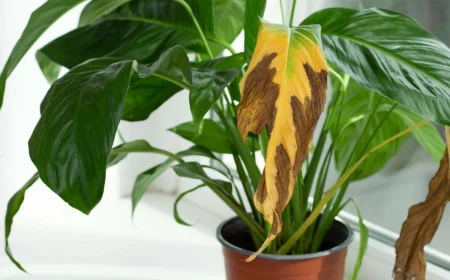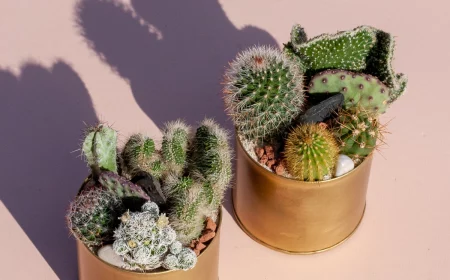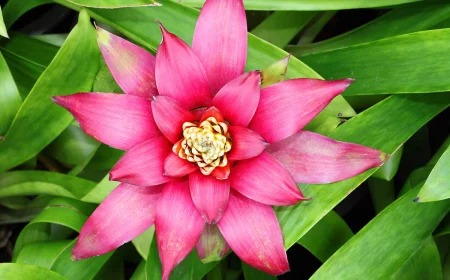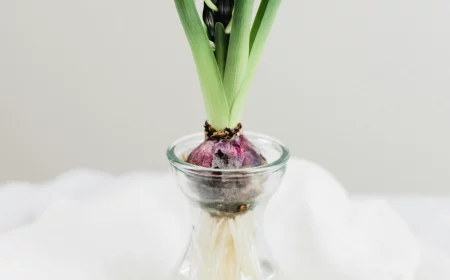DIY Weed Warfare: 7 Simple Recipes For Homemade Crabgrass Killer
Crabgrass is often seen as the bane of every gardener’s existence. It is more than just an eyesore in your meticulously cared-for green spaces. This tenacious weed, with its sprawling nature, ruins the visual harmony of your lawn or garden. But that’s not the worst of it. It also competes aggressively with your cherished plants for essential nutrients and water. Its resilience and rapid growth rate make it a formidable opponent for any gardener. However, there is a ray of hope in this verdant battle. You can embrace a sustainable and effective approach and make your very own homemade crabgrass killer. These DIY solutions, crafted from everyday ingredients, promise an eco-friendly and safe method to banish crabgrass from your gardens, ensuring that your green oases remain as pristine and healthy as intended.
Make your very own homemade crabgrass killer
In this article
Crabgrass Killer Recipes
In the quest for a lush, weed-free garden, many turn to commercial weed killers. While these products are undeniably effective, their usage comes with significant drawbacks, particularly concerning environmental sustainability. These chemical-laden solutions are often harsh and indiscriminate. They pose risks not only to the targeted weeds but also to the surrounding ecosystem. Their residue can seep into groundwater, disrupt soil health, and even impact beneficial insects, wildlife, and domestic pets. Moreover, they raise concerns about the health and safety of children playing in treated areas. That’s why DIY weed control methods are a preferable alternative. They are not only eco-friendly, but also give gardeners complete control over what goes into their lawns and gardens.
DIY weed control methods are a preferable alternative to chemicals
Vinegar-based solution
Vinegar is a staple cleaner and disinfectant in most households. However, it also emerges as a champion in the realm of natural weed control. Vinegar offers a straightforward yet potent solution against crabgrass. To harness its power, prepare a mixture combining four parts white vinegar with one part water. Then add a teaspoon of liquid dish soap to enhance adherence to the leaves of the crabgrass. This soap acts as a surfactant, ensuring the vinegar clings to the weeds for maximum effect. Apply this solution directly onto the crabgrass, preferably on a sunny day. Sunlight accelerates the vinegar’s action, leading to quicker results. However, exercise caution during application. Vinegar is non-selective and can damage or kill other plants it contacts. Precision in targeting the crabgrass is key to protecting the surrounding flora.
Vinegar offers a straightforward yet potent solution against crabgrass
Salt and dish soap
Combining the desiccating power of salt with the adhesive quality of dish soap creates a formidable weapon against crabgrass. This recipe is simple: dissolve 1 cup of salt in 2 cups of water and then stir in a few drops of dish soap. The soap not only helps the solution stick to the crabgrass but also aids in the absorption of the salt, which works to dehydrate and ultimately kill the weed. Apply this mixture using a spray bottle for precise targeting, ensuring that it directly hits the crabgrass. Caution is advised, as salt can be equally detrimental to desirable plants and soil health. It’s essential to use this solution judiciously, focusing solely on the weed to avoid collateral damage to your garden’s other residents.
Salt and dish soap create a formidable weapon against crabgrass
Baking soda
In the world of DIY weed killers, baking soda stands out for its gentle yet effective approach to managing crabgrass. This kitchen staple, known for its myriad uses, proves invaluable in weed control. To employ baking soda against crabgrass, simply sprinkle a generous amount over the weed, covering it completely. The sodium bicarbonate in baking soda acts to disrupt the weed’s natural growth processes, effectively hindering its ability to thrive. This method is especially appealing for those seeking a non-toxic and soil-friendly option. Unlike harsher chemicals, baking soda poses no threat to the health of your soil, ensuring that your garden’s ecosystem remains balanced and thriving.
Baking soda stands out for its gentle yet effective approach
Boiling water
Sometimes the most effective solutions are the simplest. The boiling water technique exemplifies this principle in weed control. This method involves pouring boiling water directly onto the crabgrass, a process that effectively scalds the plant, leading to its demise. The intense heat from the boiling water instantly damages the crabgrass, causing it to wither and die. This technique is best used in areas where it can be applied without risk to other plants, as the boiling water is indiscriminate and can harm any vegetation it contacts. It’s an ideal solution for cracks in sidewalks or driveways where crabgrass often sprouts, or in garden areas where it’s isolated from other plants.
Sometimes the most effective solutions are the simplest
Cornmeal
Cornmeal is a common kitchen ingredient. However, it also emerges as an unsuspecting hero in the fight against crabgrass. Acting as a natural pre-emergent herbicide, cornmeal can inhibit the growth of crabgrass seeds before they even sprout. This characteristic makes it an excellent preventive measure, particularly effective when applied in the early spring, just as the gardening season begins. To use cornmeal in your garden, simply spread it evenly over the soil surface in your garden beds. The cornmeal will create a barrier that prevents crabgrass seeds from germinating, thus stopping the weed in its tracks before it has a chance to grow. This method is particularly useful for gardeners seeking an organic, non-toxic way to maintain a weed-free garden, ensuring that only your desired plants flourish.
Cornmeal is a common kitchen ingredient
Lemon juice and vinegar
Harness the natural acidic properties of lemon juice and vinegar! This recipe offers a potent solution against stubborn crabgrass. By combining equal parts of lemon juice and vinegar, you create a highly effective, natural weed killer. The acidity in this mixture works swiftly to kill crabgrass, penetrating the leaves and disrupting the plant’s internal water balance. To use, apply this solution directly onto the crabgrass. The application should be precise to ensure that only the unwanted weeds are targeted. While highly effective, this mixture can also affect other plants it comes into contact with, so careful application is essential. This method is ideal for gardeners looking for a powerful, natural solution to their crabgrass problem, ensuring that the rest of the garden remains unharmed.
Harness the natural acidic properties of lemon juice and vinegar
Rubbing alcohol spray
Rubbing alcohol, a common household item, can be transformed into an effective weapon against crabgrass when diluted properly. To create this solution, mix 2 tablespoons of rubbing alcohol with a quart of water in a spray bottle. The alcohol, when diluted and applied, works by drawing moisture out of the crabgrass, effectively dehydrating and killing the plant. This method is particularly useful for spot treatment of crabgrass, allowing for targeted application without harming the surrounding soil or nearby plants. It’s a convenient and easy-to-prepare solution, ideal for gardeners who prefer a quick and effective method to control crabgrass. Remember to use this spray judiciously, as higher concentrations of alcohol can be harmful to soil health and other garden plants.
Rubbing alcohol can be transformed into an effective weapon against crabgrass
Embracing DIY methods for weed control not only benefits your garden but also contributes to a healthier environment. These homemade crabgrass killer recipes use natural and readily available ingredients. This means that they offer a safe and sustainable alternative to commercial herbicides. So, the next time you spot that pesky crabgrass peeking through your lawn, reach for one of these homemade solutions, and rest assured that your garden is in good hands. Remember, a little effort goes a long way in maintaining the beauty and health of your garden, in an eco-friendly way.
These homemade crabgrass killer recipes use natural and readily available ingredients




















